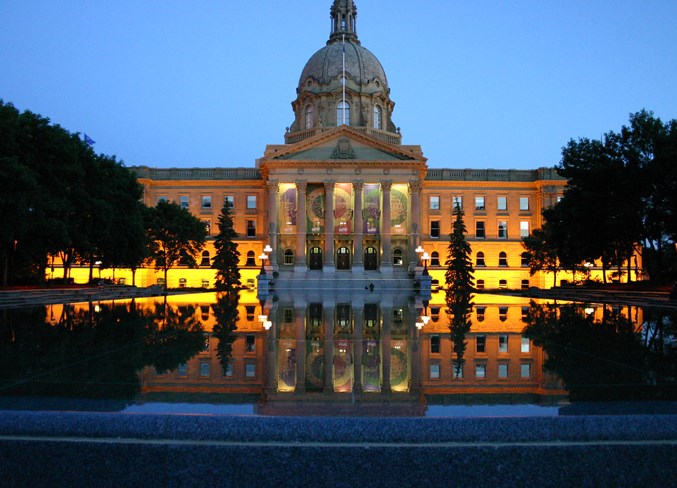Olds & District Chamber of Commerce president Mark Johnson says the provincial government's budget, released Thursday, is not as harsh as it could have been, and he believes it's short-term pain for long-term gain.
In fact, Johnson is confident businesses looking at investing in Olds will likely do so in the wake of the budget. He noted he's on the town's economic development secretariat and as such, is privy to some investments under consideration. He said they've factored anticipated cuts into their plans.
Some key parts of the budget:
Beginning in 2020-21, the provincial government plans to cut the amount of money it shares with municipalities through its Municipal Sustainability Initiative (MSI) program. The Town of Olds uses money from that program for many local projects.
In total, provincial funding to municipalities will be $1.2 billion in 2019-20, a drop of $208 million from the level in 2018-19.
The province's Rental Assistance program budget is being cut by 24 per cent over three years, beginning in 2020-21. However, the government says it will honour existing rental assistance agreements.
In regard to K-12 education, the provincial government is freezing overall funding at $8.2 billion — the same figure the former NDP government spent on it last year. Funding will remain at that level for the next three years.
Spending on instructional services will rise by 2.2 per cent from $6.3 billion to $6.4 billion by 2022-23.
However, spending in other areas like transportation will fall from $751 million to $700 million by 2022-23. Program support services will be slashed by $2 million over the next three years.
At the post-secondary level, the government is dropping the five-year freeze on tuition, starting in 2020-21. Overall tuition increases will be capped at seven per cent per year for three years, for a total increase of no more than 21 per cent by 2022-23. No program within a school will be able to increase its tuition more than 10 per cent per year.
Licence plate fees for motor vehicles are rising from $75 to $80 and the price for non-commercial trailers is increasing from $100 to $150.
The cost of a carton of cigarettes is rising $5 to $55 and there are plans to tax vaping products in the future.
Special needs programs such as Assured Income for the Severely Handicapped (AISH) will no longer be indexed to inflation.
"The government's done some good things to slow the growth of our deficit, try to bring the budget back in line," Johnson said during an interview with the Albertan.
"Speaking from the chamber's standpoint, trying to keep the costs of operating the government down, right? Not continuing to spend money you don't have is a good thing, and that's what Alberta needs right now."
Johnson said the provincial government is simply being prudent.
"They're not projecting huge increases in oil prices or anything like that, that somehow we're going to reap a huge windfall because oil prices are going back up, which is good. I think past governments have set unrealistic oil price expectations."
He conceded the tuition increases could have an impact on the Olds economy because of the many students who attend Olds College.
"The price to the students is going to go up, which is going to mean the students might have a little less disposable income to spend in town," he said. "But we don't know what those hikes are going to look like. Most colleges aren't going to hike it too much."
Although no one likes to see price increases, Johnson said increasing prices — so-called "sin taxes" on cigarettes is something he agrees with.
"Most of us would rather see the price of cigarettes go up than the price of gas go up," he said. "We're central Albertans, right?"
Johnson conceded that the Town of Olds will likely have to increase local taxes to cover costs not being borne by the provincial government, but he is confident the hike won't be huge.
"It's not huge cuts though. It's percentage, right? It's not like they're whacking 50 per cent," he said.
"Is it going to have a huge impact here in town? I don't think so. It's not like the previous government hiking the minimum wage. That had a far greater impact on a lot of businesses than maybe our taxes are going to go up by $25 a year.
"I just don't see there's going to be a huge impact — immediately. And it's going to be better for us long term."
Johnson said cuts have to be made now to balance the books for the future.
"We've had three-plus provincial governments that just thought the good days were never going to end and they kept writing cheques. Now we have to account for that," he said.



